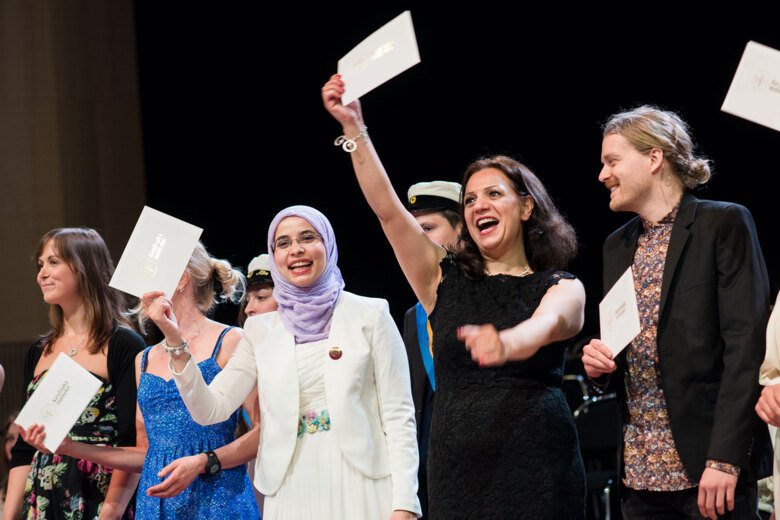For students attending the Master's Programme in Biomedicine New Syllabus 2021 for the Master's Programme in Biomedicine
FOR STUDENTS APPLYING TO THE Master's Programme in Biomedicine
Starting in the autumn semester of 2021, the Master’s Programme in Biomedicine will be given with a new syllabus (programme code 4BI21).

In this new syllabus, the overarching objective of the programme remains to prepare students for doctoral studies /research, or research-related work either within or outside of academia.
Students attending the Master's Programme in Biomedicine will learn about the functioning of the human body in health and disease at the molecular level and to consider individual variation. This provides a basis for understanding the course of disease and for developing new treatment strategies.
The programme also focuses on practical and theoretical aspects of biomedical research with the aim of improving human health. Translational research is a central theme, which builds upon the concept of the implementation of experimental results for patient benefit, and of clinical observations providing a basis for new research ideas.
Syllabus for 4BI21 Master's Programme in Biomedicine
Scientific knowledge, competence and approach
The programme provides broad knowledge within the field of biomedicine with a focus on methods and findings in frontline research. During the programme, students are trained to search and critically assess information as well as discuss ethical aspects of research. Practical skills form an essential component of the entire programme, trained primarily in the form of individual research projects. The degree project focuses on scientific methodology and analysis as well as on oral and written communication.
A number of subject-specific topics form the basis of several of the courses in the programme, with the remainder of the courses being individual research projects. In addition, the following overarching themes are integrated throughout the programme:
- global perspective;
- ethics and equal treatment; and
- critical thinking and scientific reasoning.
Students are able to specialise within their studies through a combination of their choice of research areas for their individual research projects, and their selection of elective courses. The programme offers the following electives in the third semester, which are run in close collaboration with major research environments at Karolinska Institutet:
- Cell Biology, Development and Regeneration;
- Circulation, Metabolism and Endocrinology;
- Immunology and Infection;
- Neuroscience; and
- Tumour Biology.
